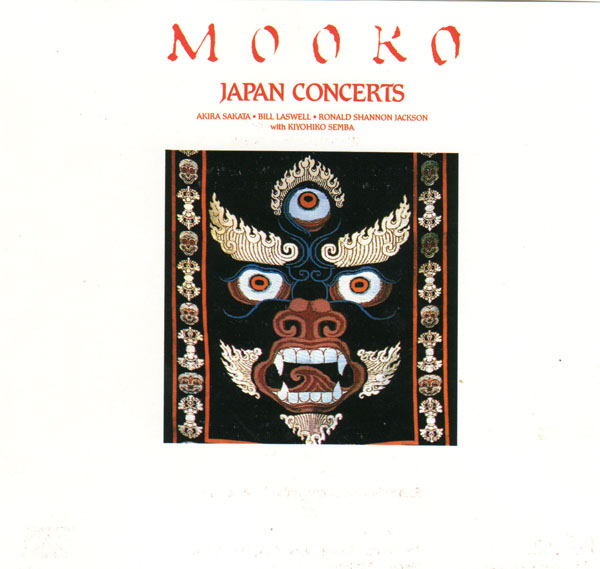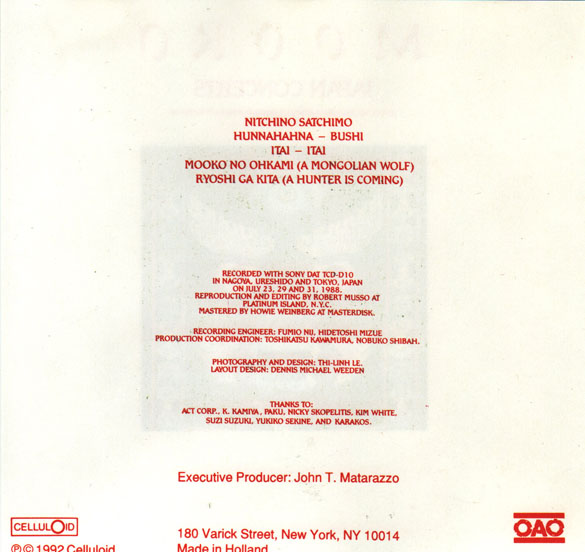MOOKO




1/ Nitchino Satchimo (Mooko) 9.44
2/ Hunnahahna - Bushi (Mooko) 7.16
3/ Itai - Itai (Mooko) 2.08
4/ Mooko No Ohkami (A Wolf Is Coming) (Mooko) 5.15
5/ Ryoshi Ga Kita (A Hunter Is Coming) (Mooko) 15.00
Recorded with Sony DAT TCD-D10 in Nagoya, Ureshido and Tokyo,
Japan on July 23, 29 and 31, 1988
Recording engineers: Fumio Nu and Hidetoshi Mizue
Preproduction and editing by Robert Musso at Platinum Island, New York
Production coordination: Toshikatsu Kawamura and Nobuko Shibah
Mastered by Howie Weinberg at Masterdisk
Remastered by James Dellatacoma at Orange Music, West Orange, NJ
Design & photo by Thi-Linh Le
Layout by Dennis Michael Weeden
Akira Sakata: saxophones; Bill Laswell: bass; Ronald Shannon Jackson:
drums, voice; Kiyohiko Semba: ????.
1992 - Celluloid (USA), CELD 6175 (CD)
2020 - Bill Laswell Bandcamp (Bassmatter Subscription Exclusive)
Brian Olewnick (courtesy of the All Music Guide website)